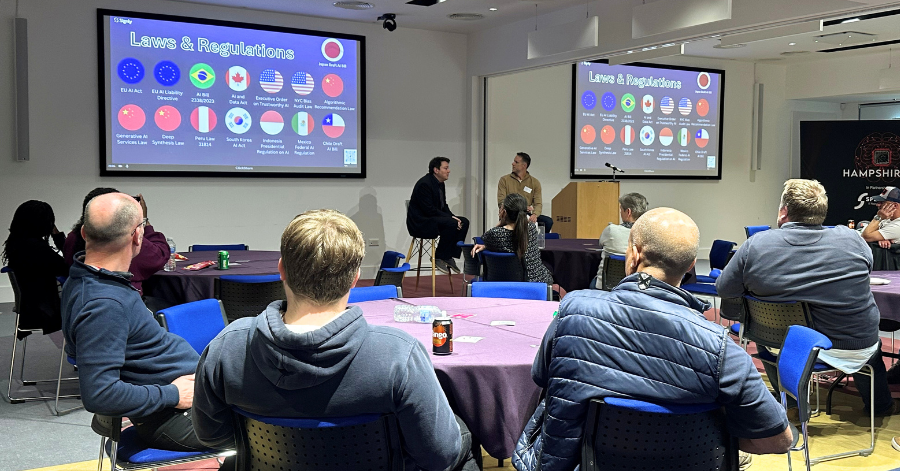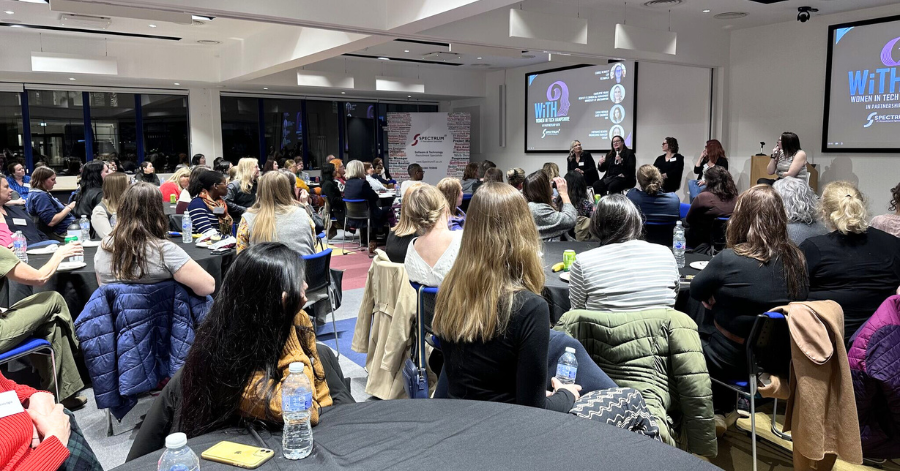
Autism Friendly Interview Process - 6 Top Tips
28 Mar, 201811 Minutes
Inspired by World Autism Awareness Week, we are sharing 6 tips for making your interviewing process friendlier for people on the Autism spectrum.
These points are being made as suggestions, however, many would be mandatory if a candidate requests reasonable adjustments under the Autism Act.
You might be mistaken in thinking that this will need to be a specialised process for people on the Autism spectrum, leading to worries of disability discrimination; however, improving these areas of your process will make it easier for all interviewees. This means that your overall process will be enhanced and you do not need to distinguish who is, or is not on the Autism spectrum.
About Autism
Before starting, it is important to highlight that Autism is a lifelong disability that affects how a person communicates with, and relates to, other people. It also affects how they make sense of the world around them.
It is a spectrum condition, which means that, while all people on the Autism spectrum share certain difficulties, their condition will affect them in different ways. Some people on the Autism spectrum are able to live relatively independent lives, while others have accompanying learning disabilities.
Misconceptions of this disability could be limiting your business. Consider the differences between these people: Lionel Messi, Charles Darwin, Tim Burton, Daryl Hannah, Susan Boyle, Albert Einstein, Andy Warhol, Dan Aykroyd, Chris Packham and Alan Turing (Enigma machine). These people have very different personalities and hold a wide range of talents. They all on the Autism spectrum, diagnosed during or in retrospect of their life. Autism is a part of a person, but will not determine how they are within your company.
1. What are you judging?
When reading a Top Tips article for interviews, you are likely to see a bullet point about eye contact and handshakes. We all know that first impressions are a human instinct, but it is worth being mindful of what you’re picking up on. Interviews are known for making people nervous, so if the candidate struggles with eye contact, this is likely to be intensified when they meet you. Don’t judge too harshly, particularly when the job role doesn’t require this. Give them time to settle in and get to know their surroundings.
Furthermore, if they struggle with small talk at the reception desk, don’t assume that they will be the same after relaxing into the company. There is a lot to take in when visiting a place for the first time and they will be conscious that their every word is being judged.
2. Literally look at your job specification
Have a look at your job specification and your emphasis on skills. Are you listing transferable skills with heightened importance? For example:
Applicants must:
- be an excellent team player,
- have outstanding time keeping skills. Clean record for being on time,
- have unquestionable communication skills and
- know the industry perfectly.
Often those with Autism will read requirements literally. For instance, take the requirement “unquestionable communication skills”. This requirement is subjective and could stop them applying, even if they match the role.
Can you say, hand on heart, that you have never had a telephone call where you muddled your words? Have you ever been speaking to a friend outside of work and you put across your point in the wrong way? When thinking literally, no one would apply for this role. As well as being subjective, some information is unnecessary.
Amend how you word the requirements, for instance:
- “know the industry perfectly”
Could be
- “Experience working in a DevOps environment”
- “An interest in approaches to scaling high traffic web applications”
Where appropriate, change headers such as ‘requirements’ to ‘beneficial skills’ to better represent your need level. Additional, explaining why a skill is useful can give clarity. Example:
“As you will be liaising with various internal teams, your communication skills, both written and verbal must be very strong.”
3. Be prepared to prepare your interviewee
Preparing people for your interview can relax them, and make them more likely to open up. People on the Autism spectrum are prone to anxiety issues, but they are not alone. In 2013, there were 8.2 million cases of anxiety in the UK.
A way to reduce this is to give a clear outline of your recruitment process. This might include the following:
- On your job advert, add a deadline for applications and proposed dates for interviewing.
- Send prospective candidates the interview agenda.
- Tell them how many people will be in the interview, their role in the company and why have you chosen them to conduct this interview.
- Give them clear direction to the interview and encourage a visit pre-interview. Cover public transport, pictures, and maps.
- Tell them your response time for rejected candidates which have been interviewed.
4. Can you repeat that?
Telephone calls are sometimes vital in the recruitment process, however, make sure everything is followed up with an email. Putting instructions and advice in writing will mean they can remind themselves of what was said and what is expected of them.
5. Sensory issues
Imagine conducting an interview in the entrance of Southampton’s West Quay Shopping Mall on a busy Saturday. I doubt you’d be shocked to have moments of distraction and difficulty understanding the questions. This would not suggest that the candidate would be any worse at your role. People on the Autism spectrum are hyper-aware of what is going on around them, so may feel more overwhelmed in an environment.
Now think about your interview space. Are there screens showing the news or is there noise from a heater? They already have to take in your body language and tone of voice. Anything else is an additional thing they need to process, so remove what you can to clear their thinking space. Hold meetings in rooms with as little distractions, décor and signs as possible. Cafes are especially challenging environments to interview in.
If you are short on meeting space consider rooms which you can rent. If you don’t fancy spending out on private room hire, think about companies you work with. Spectrum IT Recruitment allows the use of their meeting room, free of charge for all their clients, for as many interviews needed. Perhaps you have contacts which can help you out to make your interview professional, yet comfortable.
6. How are your questions worded?
In the same way that interview requirements can be taken literally, so might interview questions. Write down your interview questions in advance and consider how they might be misinterpreted. Give time for the candidate to think about their answer, and allow them to answer in their own time. If there is no answer or you feel their answer is slightly strange, ask the question in another way.
By implementing this, you are assessing the candidate’s ability to complete your role and aren’t unfairly tripping them up due to their different interpretation of your questions.
For bonus points, some companies have been seen giving their interview questions to candidates in advance. This can give a candidate the opportunity to prepare bullet points and properly explain their skills. An organisation would have to make this reasonable adjustment if asked by a candidate under the Autism Act.
Summary
As an employer, you will try to understand how different people think and implement subtle things to make your working environment better. Your interview process should be no different.
Prepare your interview in advance and look at how things are worded. Remember that you know your company well, and although you want a candidate to do research on your business, they will still have questions. Make it clear what you expect from a candidate. There is no benefit to you or the candidate if you over complicate this process.
Think back to our article titled Recruiting the Golden Unicorn. Although you don’t want the whole world to apply for your role, you need to be realistic, making near-perfect candidates comfortable in applying.
Need more advice?
We hope these points have opened up your thinking and adjusted the way you look at your interview process. For more information, see The National Autistic Society, including their information on the Autism Act.
Locally - the charity Autism Hampshire give advice on many subjects including recruitment guidance for employers and candidates.




